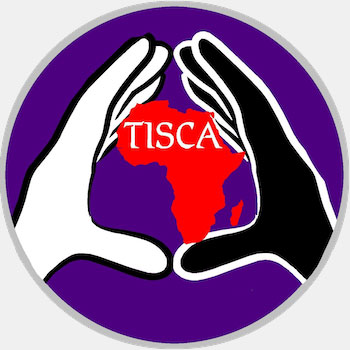We use cookies on this site to enhance your experience.
By selecting “Accept” and continuing to use this website, you consent to the use of cookies.

Dec. 30, 2016
By: Jeff Grischow
Lately I’ve been sifting through responses from Africa and Africans to Donald Trump’s election victory. They make for some interesting reading.
In October 2016, Nobel Laureate Wole Soyinka spoke at Ertegun House, Oxford University and declared that he would cut up his Green Card in the unlikely event that Trump won the Presidency. Well, it happened as we all know. In early December Soyinka announced at a Lagos press conference that he had followed through on his intention. He did not rule out visiting the United States in the future ‘if it becomes necessary’ but said that he would be ‘carrying a regular visa.’ You can read about Soyinka’s response:
Liberian President Ellen Johnson Sirleaf expressed sadness at Hillary Clinton’s loss and concern about America’s future relations with the African continent. President Johnson Sirleaf was quoted as saying that she is: ‘concerned as to whether President-elect Trump will have an African agenda, will be able to build bridges with Africa. We can only hope that he will do so in due course. I’m worried about trade deals for Liberia, for Africa. I’m worried about investment and the special programmes that have been put in place by President Obama and by President George Bush before him, and we just don’t know what the policy towards Africa will be.’
Read the report on Johnson Sirleaf’s reaction (Independent).
In contrast, Nnamdi Kanu – the leader of one of Biafra’s secessionist movements – is hopeful that Trump’s support for Brexit might spill over into support for Biafran independence. Kanu’s open letter to Trump reportedly states that Trump has a ‘historic and moral burden … to liberate the enslaved nations in Africa,’ which are victims of colonialism’s artificial boundaries. This is particularly interesting considering that Kanu is currently a political prisoner in Abuja charged with treason. Another Biafran activist, Clifford Iroanya, has invoked Trump’s tweet about Brexit (‘Self-determination is the sacred right of all free people.’) as a sentiment that Trump has a duty to apply to all indigenous peoples, including the people of Biafra. Read the full report regarding Kanu's open letter (VOA news).
Elsewhere across the continent, the Ethiopian Prime Minister Hailemariam Dessalegn congratulated Trump and his government officially said that they believe that under the Trump administration ‘the historical relation of the two countries will reach a new height.’ Yoweri Museveni of Uganda also congratulated Trump on his victory, as did Michael Makuei, the Information Minister for South Sudan, who wrote that ‘I really doubt President Obama had any clear policy to South Sudan other than to destroy it. So we will definitely expect better relations with Trump — and the U.S.A. after the election.’ For the report, read Somalia and East Africa React to Donald Trump's Election Victory (Somalia Newsroom).
In Egypt, President Abdel Fatah al-Sisi called Trump to congratulate him and invited him to visit Cairo. In the Democratic Republic of the Congo, President Joseph Kabila not only congratulated Trump but also praised his ‘brilliant electoral victory’ and vowed to work with the new administration to strengthen the ties between the DRC and USA.
For Egypt, the DRC and other African reactions read World leaders react to Donald Trump's US election victory (The Guardian).
This is merely a small snapshot of reactions to Trump’s election victory from prominent African intellectuals, activists and leaders. I’ll leave it to the readers to decide how to interpret these remarks. As for America’s future relations with the African continent, only time will tell. Stay tuned…